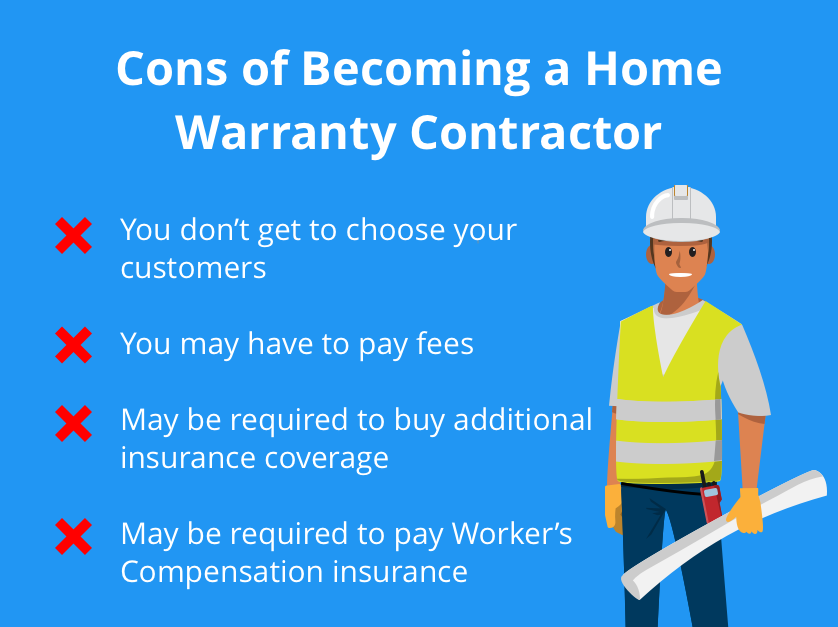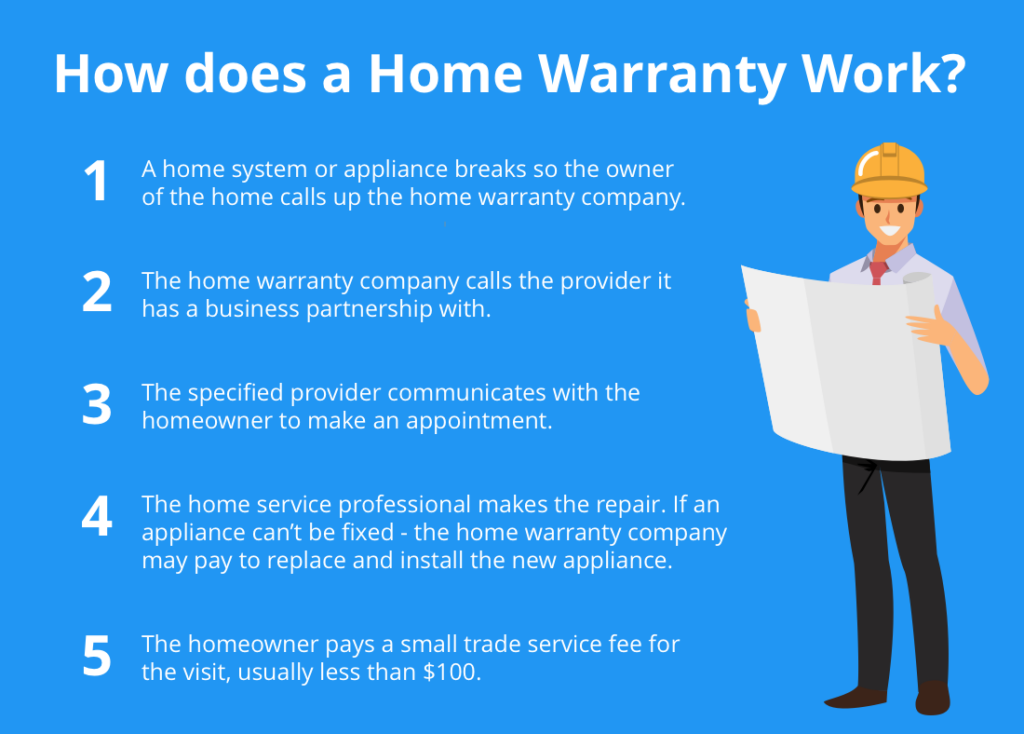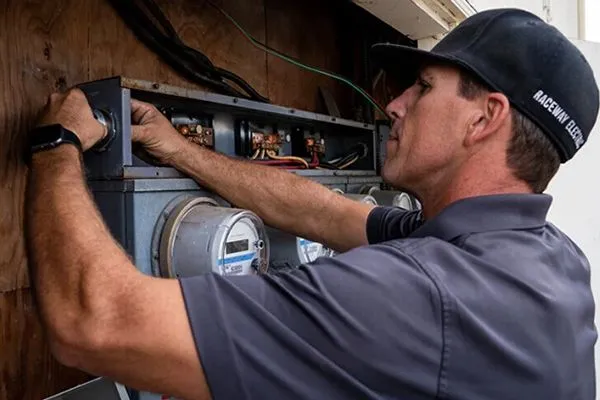
Why you should be come a home warranty contractor
Home warranties can deliver peace-of-mind to new homeowners who’ve just gone through the stress of finding and buying a home. But when homeowners actually use their policy, home warranty companies rely on service providers to fulfill the request for necessary repairs and services. That’s where you (could) come in!
As a home warranty contractor, you’ll be charged with the responsibility of fulfilling the terms and conditions of service for a particular warranty policy. For your small business, this could mean you get the opportunity to receive a steady stream of new customers on top of your regular customer base and create brand visibility in your local market. But, on the flip side, being a home warranty contractor means you don’t get to choose what clients and projects you take on.
There’s a lot to be said about home warranty contracting, so keep reading for a full explanation of the ins and outs of this industry and how it could benefit you as trade service professional.
Pros and cons of being a home warranty contractor
If you’re thinking about becoming a home warranty contractor, there are both benefits and drawbacks associated with this type of employment. The home warranty company you’ll hypothetically work with will provide you with a steady stream of customers using a warranty policy to request a repair. In turn, this gives you the chance to gain new clients.
If you’re chosen for a particular repair on a home warranty appointment and the customer is pleased with your work, he or she is more likely to use you again for other repair work or services. This is especially helpful if you’ve been trying to figure out how to get more exposure for your business because partnering with a home warranty company is a great way to get your name out locally. Plus, in most cases, those referrals you get sent are free.
Pros
- You don’t have to find customers, they’re sent to you
- Increases your cash flow
- Referrals may be free
- A way to grow your customer base
On the other side of the coin, there are also a few drawbacks to becoming a home warranty contractor. For example, you don’t necessarily get to choose the clients you work with because they’re simply assigned to you by the home warranty company. You may also be faced with certain fees and the hassle of obtaining additional insurance coverage. The prices and fees will vary company to company, so do your due diligence and research the companies before applying to partner with one (or multiple).
Cons
- You don’t get to choose your customers
- You may have to pay fees (depending on the home warranty company)
- May be required to buy additional insurance coverage
- May be required to pay Workers’ Compensation insurance
You’ll have to make the decision as to whether or not the additional expense of adding home warranty work is worth it for you and your employees. Curious how home warranties actually work? Keep reading to learn more about the general home warranty process and gain a little insight into how most policies operate.
How do home warranties work?
A home warranty helps protect homeowners for unforeseen accidents or expensive repairs. Companies charge customers based on specific terms and conditions on a monthly or yearly basis.
Typically, customers making a claim through their home warranty insurance provider must take the following steps:
- A home system or appliance breaks so the owner of the home calls up the home warranty company.
- The home warranty company calls the provider it has a business partnership with.
- The specified provider communicates with the homeowner to make an appointment.
- The home service professional makes the necessary repair. If an appliance can’t be fixed – dependent on the contract coverage – the home warranty company will pay to replace and install the appliance.
- The homeowner pays a small trade service fee for the visit, usually less than $100.
What’s usually not covered?
The Federal Trade Commission offers more information about warranties for homes and what customers can expect, including a list of specific items policies typically don’t cover, such as:
- Outdoor items like sprinklers
- Faucet repairs
- Refrigerators, washers, dryers, garage door openers
- Spas or pools
- Permit fees
- Haul-aways
- Items broken before closing
- Exclusions noted in the policy
Again, the specific items, appliances, and parts included or excluded by the home warranty insurance coverage differs from company to company. Home warranty businesses typically offer a variety of plans with varying degrees of coverage.
For trade professionals like yourself, these companies partner with service contractors to go out to customer homes and assess repair needs.
What’s the process of becoming a home warranty contractor?
Much like the terms and conditions of each home warranty policy, the requirements to become a home warranty contractor are variable. For all companies, however, you’ll have to send in a formal application with verification documents showing your status as a licensed contractor. You will also likely need to carry $1,000,000 in General Liability Insurance and provide proof of Worker’s Compensation insurance or a waiver if you’re self-employed.
Let’s dive into some of the biggest home warranty companies and see the benefits of working for each one.
Examples of Warranty Companies
Fidelity National Home Warranty
BBB rating: A+
If you choose to apply to work with Fidelity National Home Warranty, there are a few requirements you’ll need to fulfill, such as being a contractor licensed to work in your state and having two types of insurance coverage, General Liability and Workers’ Compensation.
FNHW employs service providers specializing in roofing, electrical systems, pools, spas, garage door openers, plumbing, HVAC, and major appliances.
The benefits of working for FNHW include reliable cash flow, online invoicing for Preferred Service Providers, a bigger foundation of customers, payment within 14 days of receipt of an online invoice, performance reviews, and experienced authorizers to move you through the approval process easily and efficiently.
2-10 Home Buyers Warranty
BBB rating: A
2-10 HBW covers over 5.5 million new and pre-owned homes which means you have tons of opportunities for service calls if you are accepted as a contractor. The company offers free referrals to both structural and system repair contractors.
Home warranty contractors with 2-10 HBW can grow their business without negatively impacting their bottom line thanks to free customer referrals. They can also manage all of their contract jobs through email, fax, and online dispatching.
For small business owners, it’s crucial to know where your technicians are going, when, and to what job to stay on track – and 2-10 HBW makes it simple to do so.
Don’t like slaving over papers? You can take advantage of online invoicing as well as email and fax authorizations digitally instead. Easily manage tons of business details online like obtaining your approvals, invoice for payments, and incoming claims.
One of the most exciting aspects of this company is the chance to become a 2-10 HBW Preferred or Premier service contractor in your local area. This means you’ll be at the top of their vendor list when warranty claims are processed!
AFC Home Club
BBB Rating: B
One of the most highly rated home warranty companies, AFC Home Club, provides contractors with reliable work and year-round service calls. It allows home service professionals to create the opportunity for repeat business with no cost to you.
The best part? AFC allows customers to choose their favorite local pro to fulfill warranty work. So, if an AFC warranty member has a pre-existing relationship with you, he or she can call you instead of another competitor.
No need to spend exorbitant amounts on marketing, AFC provides you with customers without the additional expense of advertising. Plus, you’ll have a live support team to answer questions as they come up.
For busy trade professionals, time is everything. Streamline all your necessary back-office work by using AFC’s online invoicing and quick pay programs.
Complete Protection
BBB Rating: A+
As an A+ rated BBB member, Complete Protection® is a great home warranty company to partner with. There’s no deductible to retrieve from the customer, easy authorization, phones are staffed 24/7, easy billing processes, and on-time payments mean you can focus on the task at hand: growing your business.
To join Complete Protection, you’ll need to submit an official enrollment packet online. After that, you can sit back and watch as those calls roll in!
Take on extra home warranty calls by using the right software
If you decide to take on additional business and sign on with a home warranty company, you’ll likely have to manage an influx of service calls and customers. In order to manage this new revenue stream, it’ll become important to efficiently manage your time and team members. One way to do this is by using small business management software like Housecall Pro.
With the Housecall Pro app, you can easily set up recurring service agreements, send out team members with service dispatch software, and organize your new customer contact list. Becoming a home warranty contractor is a big decision but it may just provide you with loyal customers who come back year after year.









